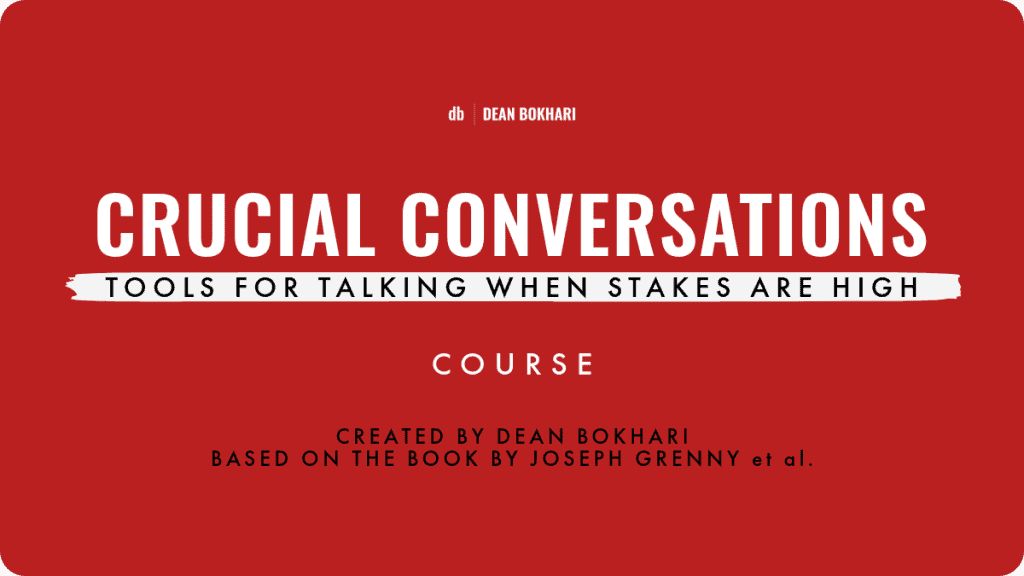1. How Crucial Conversations turn into emotionally-charged debates (with examples)
Have you ever been in a conversation that began well enough, but ended up turning into a huge argument? You’ve likely had conversations that ended up this way more than a handful of times. I know I have. Sometimes it happens with a spouse or partner. Sometimes it happens with a colleague or co-worker. Heck, sometimes it happens with people you barely even know!
These are precisely the kinds of crucial conversations that take a wrong turn and become irrational and emotionally charged debates—causing a complete breakdown of communication between two people.
To understand how this happens, we need to start with the brain and body…
When you’re involved in an emotionally charged conversation, the body releases adrenaline. This sends signals throughout your brain and body to prepare for an incoming threat—which puts you in fight-or-flight mode. Now, this mode is great for survival in actual danger, but in an emotionally charged conversation, it only makes things worse.
Once your body goes into fight-or-flight mode, it becomes hard to think clearly or rationally anymore.
So you either fight (get angry, shout, argue, etc.) or you take flight (stop arguing, try to end the convo, run away, etc.)
To make things even worse, the most important conversations usually take place completely unexpectedly and without any warning…
Imagine having a perfectly normal day when your spouse or partner suddenly tells you they want to end the relationship.
Now, since you probably weren’t expecting this, it’s likely that your reaction will be completely spontaneous.
You might freak out and start crying and yelling. Or maybe you go radio silent, feeling too shocked to do anything but walk away while holding back your tears.
Of course, a wiser course of action would be to take a breath, think about what you just heard, formulate your thoughts, and then respond.
But as I mentioned above, the adrenaline rush makes that nearly impossible, and before you know it, you’re in the middle of a heated conversation…
And yet, aren’t these the very conversations that matter most?
If only you could learn to tackle them better, you could have more impact across your communications in every area of life.
In the book, the authors cite a study in which 20,000 participants were surveyed about how they deal with crucial conversations.
The results revealed that those who could master the art of crucial conversations usually dealt with their professional challenges more effectively. These were the people who emerged as thought leaders in their organizations.
But it doesn’t end there.
The study also shows that those who excel at crucial conversations benefit not just professionally, but personally too: These crucial conversationalists had a higher likelihood of staying together with their spouse or partner—reducing their likelihood of being involved in a divorce or breakup by up to 50%.
Incredible.
The truth is, the ability to communicate and converse with others, and to do it well, is one of the most important skills any of us can develop.
So here’s the billion-dollar question…
How can you effectively handle and navigate crucial conversations in your own life?
That’s what we’ll be getting into in our next lesson.
If you’re enjoying this free course on Crucial Conversations, you’ll love the full version of this training program. Learn more and register below 👇
$294.00
Now only: $275.00
